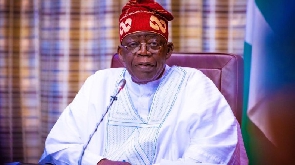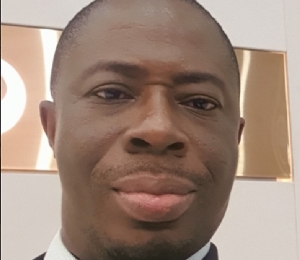... its numerous endowed resources
Abuakwa (Ash), Dec 18, GNA - The inability of policy makers to develop appropriate educational reforms to turn round the development wheels of the economy has made the country to remain poor in the midst of abundant endowed natural resources.
Professor Kwasi Kwafo Adarkwa, Pro Vice-chancellor of the Kwame Nkrumah University of Science and Technology (KNUST), who said this, noted that the situation has resulted in a steep decline of the living standards of the people and the country's per capita income. He was addressing the first graduation ceremony of Saint Lisbert International School at Abuakwa near Kumasi on Saturday under the theme, "Quality Education is a Pre-requisite for Ghana's Overall National Development".
Prof Adarkwa said many nations that the country nurtured to attain political independence were now economically independent whereas the country remained dependent on the International Monetary Fund (IMF), the World Bank and other donor agencies for almost everything. This unfortunate phenomenon, he said, has reached alarming proportions to the extent that the national budget is about 40 per cent funded through donor support.
He said through well-defined educational policies, countries who hitherto were plagued with poverty have tried to develop their economies through industrial and technological education.
"It is a known fact that it is this kind of education which these countries provided their populace that propelled them into stardom and prosperity", he said.
Prof Adarkwa observed that quite recently people have had cause to question the integrity of the university and polytechnics graduates produced because many of them do not meet the expectations of the labour market and employers.
To address the trend, he said there have been several educational reforms and regimes aimed at providing quality education to the populace and wondered whether the nation has achieved the desired objectives. Prof Adarkwa noted that quality education has now assumed global dimension and that the country's educational programmes should essentially lead to the improvement of the quality of life of Ghanaians, empowering them to overcome poverty and raise their living standards. "Ghanaian students should be trained to create wealth that is needed for the socio-economic development of the country", he said.
Prof Adarkwa contended that, "students must be equipped to fully time-tune their ideas in an intellectually and practically stimulating environment".
He stated that quality education should make the student adaptable to the demands of the fast changing world driven by modern science and technology.
Mr Joseph Adjei, the proprietor, announced that all the 17 candidates who were the first batch presented for the 2005 Basic Education Certificate Examination (BECE) passed with 13 of them obtaining distinctions.
He said the school aims at providing quality education with moral integrity to adequately equip the children for the future.












